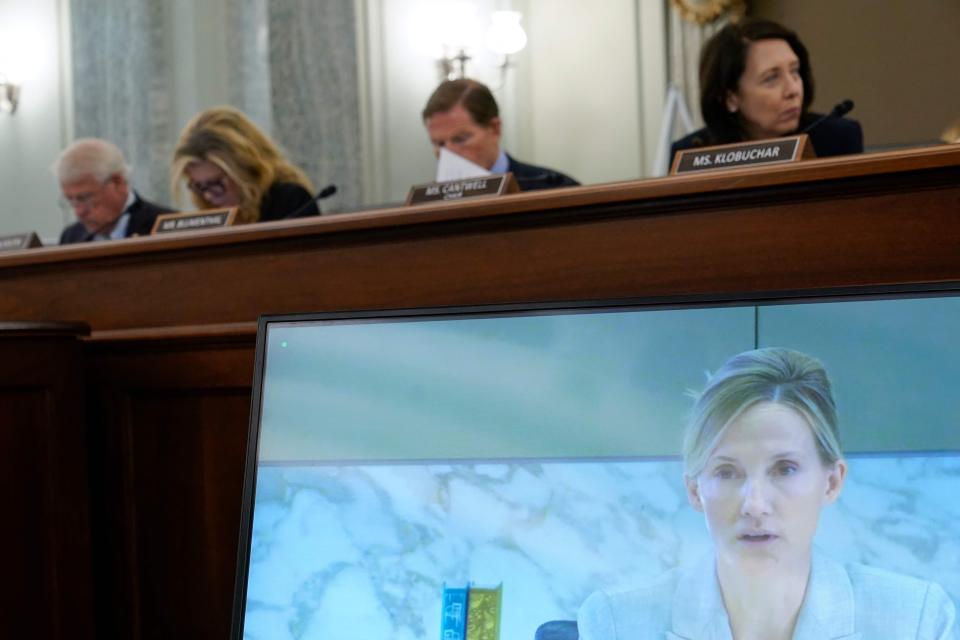Opinion: Why the Kids Online Safety Act won’t protect your child
Last spring an unprecedented advisory from U.S. Surgeon General Vivek Murthy warned of the negative effects of social media use on children and adolescents’ mental health, amplifying a research-backed, growing awareness about the impact of adult technology on today’s kids. As a result, at least two new laws aimed at protecting the safety of children online are currently making their way through Congress right now. Something should be done, at least that much is agreed upon.
However, neither the Kids Online Safety Act (KOSA) nor the Children and Teens' Online Privacy Protection Act (COPPA 2.0) offer effective solutions because they’re based on verifying users’ ages. It's not reasonable to require everyone to show their driver's license or ID, making enforcement challenging, if not impossible.
As is the case with so much of our legislation, we are faced with balancing the freedom of industry to operate without excessive regulation versus the welfare we desire for all kids. The best solution to this dilemma is uniform information labeling for apps that would clearly inform parents about the features and content available to their children through these programs. In other words, we need effective nutrition labels for apps.

We already have an industry-created, rudimentary labeling system for apps, created for gaming. However it’s wholly insufficient for parents looking to decide what is okay for their child. For example, an app rated "E" for "Everyone" in the Google Play Store can still contain full-screen, interactive ads for games with graphic violence or sexualized content and images. It can contain links to social media and pornography sites. Worst of all, the rating can call it suitable for "everyone" even when the app’s own Terms and Conditions restrict use to those over the age of 13, 18, or 21.
Accurate labeling is a time-tested, proven approach to consumer safety. In the early 1900s, when food manufacturing was largely unregulated, parents had no way to know whether the milk they purchased was safe or whether it contained formaldehyde. John Newell Hurty, Indiana's outspoken chief public health officer, began printing signs for statewide distribution that pictured the tombstones of children killed after consuming "dirty milk." This led to the passage of the Pure Food and Drug Act of 1906, which mandated accurate labeling of products and held companies accountable for misrepresentations. It not only transformed the food industry and set a precedent for corporate accountability, but it gave consumers confidence in the products they purchased for their families. These nutrition labels persist on all the products we consume today.
Modern parents deserve to understand what's in the digital environments their children are exposed to and whether they are using addictive techniques, algorithm-driven news feeds, allowing obscene content, or crossing lines with data privacy. App developers should be held accountable for accuracy in labeling, which will benefit children and force developers to be clear about the contents and effects of their creations.
Legislation like KOSA and COPPA 2.0 would not be effective as is, and are narrowly defined for social media. Certain ideas are great steps in the right direction, like empowering parents of children under 13 and teens with the right to delete content posted online, for example. Labeling would, however, cover more of the things children are exposed to even beyond social media, such as games, messaging apps and entertainment while avoiding impracticality of enforcement as well as the concern of regulatory capture enabled inadvertently in overly prescriptive clauses.
It's time for app content and information to be exposed to disinfecting sunlight. We can best balance competing interests through the simple solution of labels. Information is power. Let’s give parents more of it. With this change, they’ll be adequately equipped to avoid the "dirty milk" of the digital age.
Witbeck is an Austin-based serial tech entrepreneur and father of four. He is also the CEO and Founder of Pinwheel, which makes “kid-safe” smartphones.
This article originally appeared on Austin American-Statesman: Opinion: Why the Kids Online Safety Act won’t protect your child

